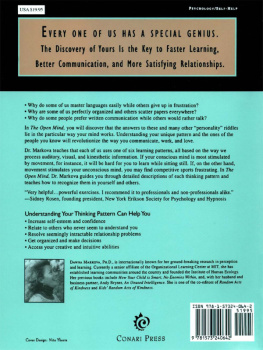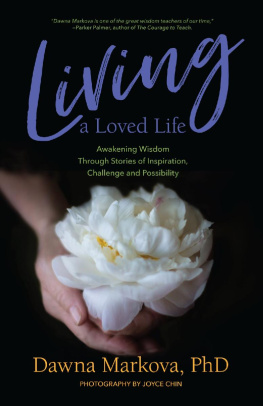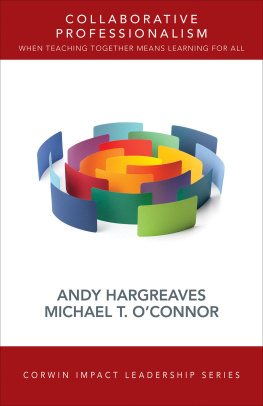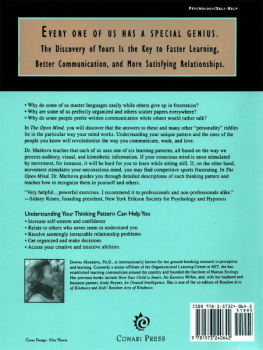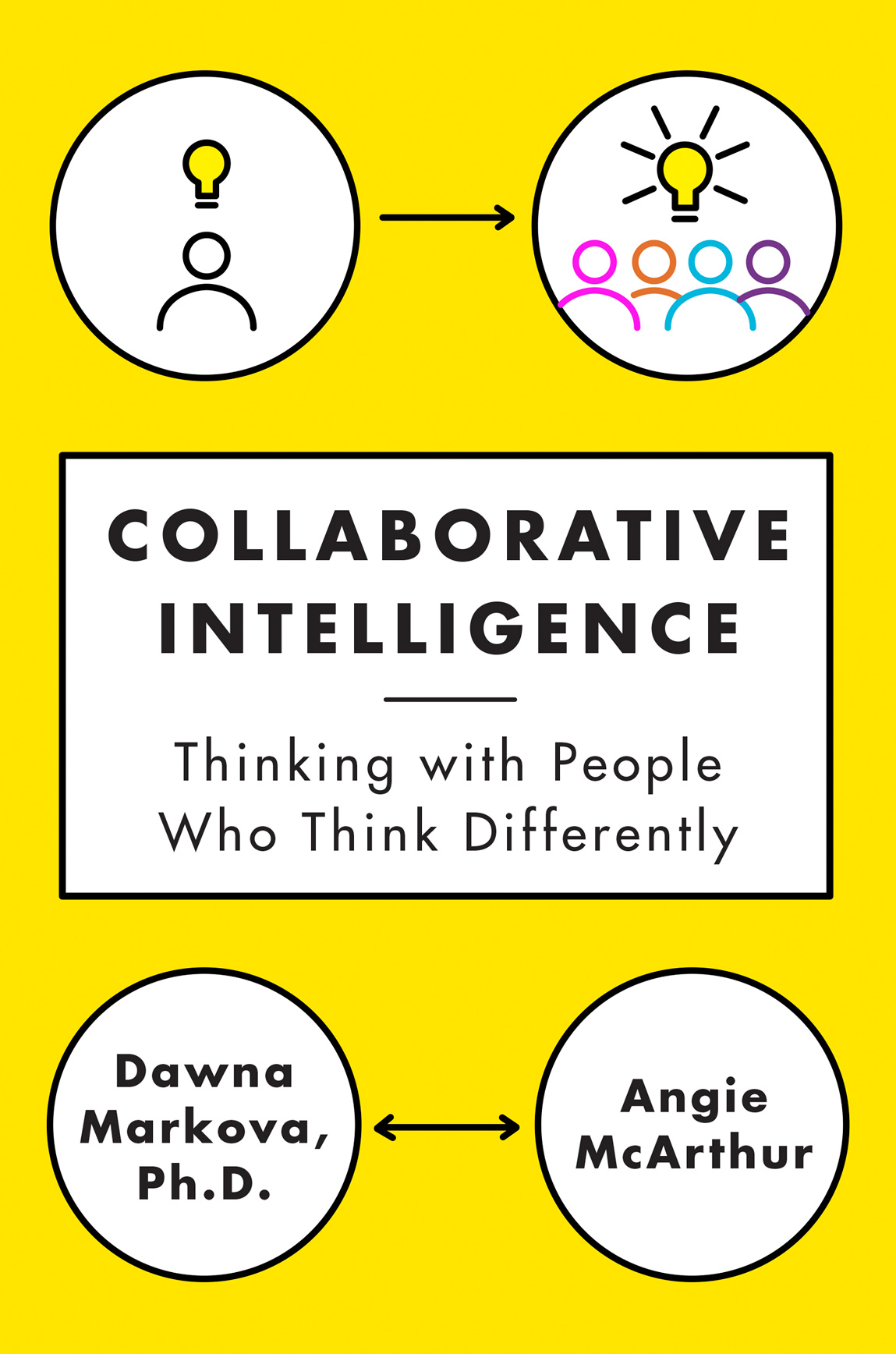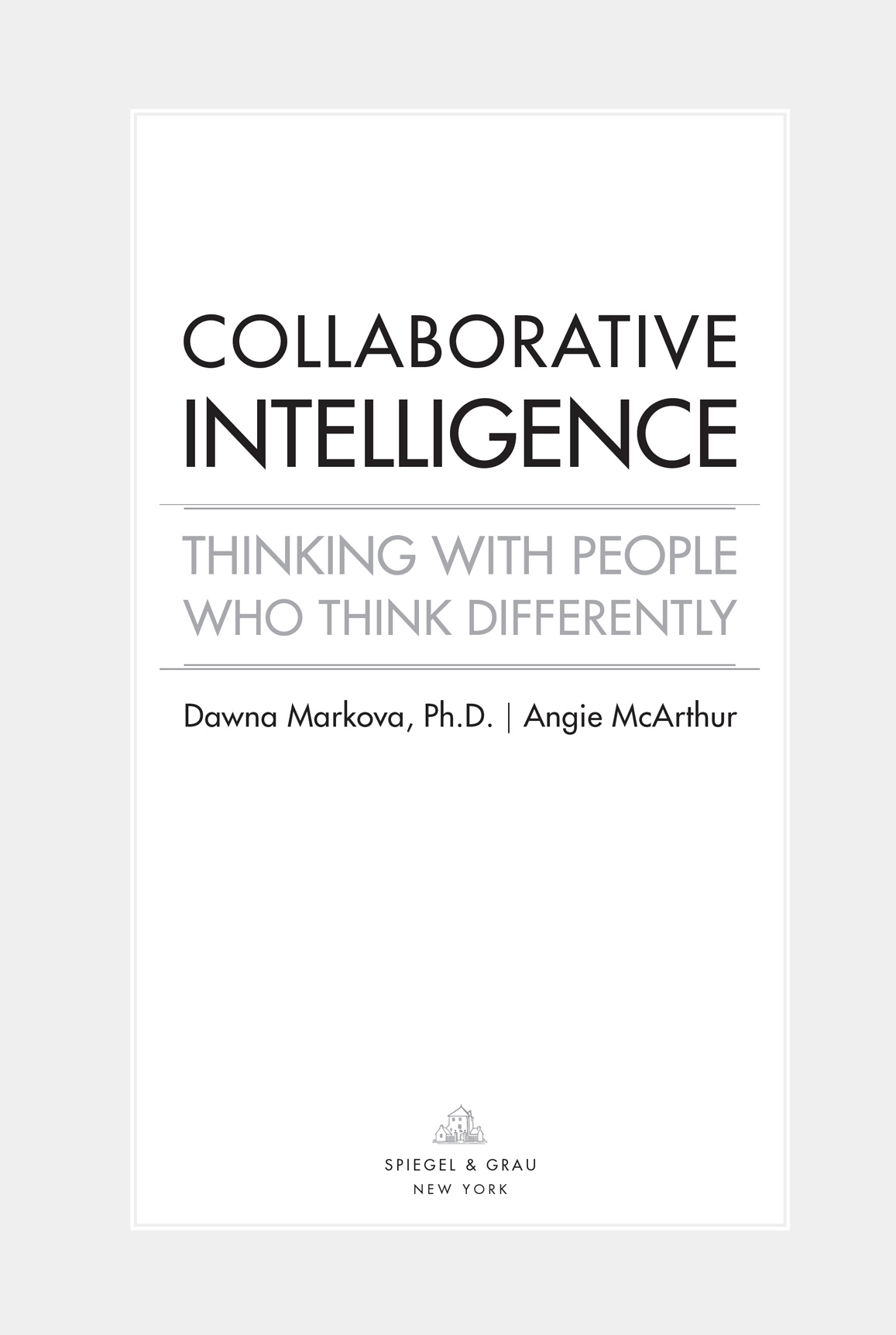Dawna Markova - Collaborative Intelligence: Thinking with People Who Think Differently
Here you can read online Dawna Markova - Collaborative Intelligence: Thinking with People Who Think Differently full text of the book (entire story) in english for free. Download pdf and epub, get meaning, cover and reviews about this ebook. year: 2015, publisher: Spiegel & Grau, genre: Religion. Description of the work, (preface) as well as reviews are available. Best literature library LitArk.com created for fans of good reading and offers a wide selection of genres:
Romance novel
Science fiction
Adventure
Detective
Science
History
Home and family
Prose
Art
Politics
Computer
Non-fiction
Religion
Business
Children
Humor
Choose a favorite category and find really read worthwhile books. Enjoy immersion in the world of imagination, feel the emotions of the characters or learn something new for yourself, make an fascinating discovery.

- Book:Collaborative Intelligence: Thinking with People Who Think Differently
- Author:
- Publisher:Spiegel & Grau
- Genre:
- Year:2015
- Rating:5 / 5
- Favourites:Add to favourites
- Your mark:
Collaborative Intelligence: Thinking with People Who Think Differently: summary, description and annotation
We offer to read an annotation, description, summary or preface (depends on what the author of the book "Collaborative Intelligence: Thinking with People Who Think Differently" wrote himself). If you haven't found the necessary information about the book — write in the comments, we will try to find it.
Collaborative intelligence, or CQ, is a measure of our ability to think with others on behalf of what matters to us all. It is emerging as a new professional currency at a time when the way we think, interact, and innovate is shifting. In the past, market share companies ruled by hierarchy and topdown leadership. Today, the new market leaders are mind share companies, where influence is more important than power, and success relies on collaboration and the ability to inspire.
Collaborative Intelligence is the culmination of more than fifty years of original research that draws on Dawna Markovas background in cognitive neuroscience and her most recent work, with Angie McArthur, as a Professional Thinking Partner to some of the worlds top CEOs and creative professionals. Markova and McArthur are experts at getting brilliant yet difficult people to think together. They have been brought in to troubleshoot for Fortune 500 leaders in crisis and managers struggling to inspire their teams.
When asked about their biggest challenges at work, Markova and McArthurs clients all cite a common problem: other people. This response reflects the way we have been taught to focus on the gulfs between us rather than valuing our intellectual diversitythat is, the ways in which each of us is uniquely gifted, how we process information and frame questions, what kind of things deplete us, and what engages and inspires us. Through a series of practices and strategies, the authors teach us how to recognize our own mind patterns and map the talents of our teams, with the goal of embarking together on an aligned course of action and influence.
In Markova and McArthurs experience, managers who appreciate intellectual diversity will lead their teams to innovation; employees who understand it will thrive because they are in touch with their strengths; and an entire team who understands it will come together to do their best work in a symphony of collaboration, their individual strengths working in harmony like an orchestra or a high-performing sports team.
Praise for Collaborative Intelligence
Rooted in the latest neuroscience on the nature of collaboration, Collaborative Intelligence celebrates the power of working and thinking together at the highest levels of business and politics, and in the smallest aspects of our everyday lives. Dawna Markova and Angie McArthur show us that our ability to collaborate is not only a measure of intelligence, but essential to solving the worlds problems and seeing the possibilities in ourselves and others.Arianna Huffington
This inspiring book teaches you how to align your intention with the intention of others, and how, through shared strengths and talents, you have every right to expect greatness and set the highest goals and expectations.Deepak Chopra
Everyone talks about collaboration today, but the rhetoric typically outweighs the reality. Collaborative Intelligence offers tangible tools for those serious about becoming system leaders who can close the gap and make collaboration real.Peter M. Senge, author of The Fifth Discipline
I have worked with Markova and McArthur for several years, focusing on achieving better results through intellectual diversity. Their approach has encouraged more candid debate and collaborative behavior within the team. The team, not individuals, becomes the hero.Al Carey, CEO, PepsiCo
Dawna Markova: author's other books
Who wrote Collaborative Intelligence: Thinking with People Who Think Differently? Find out the surname, the name of the author of the book and a list of all author's works by series.

